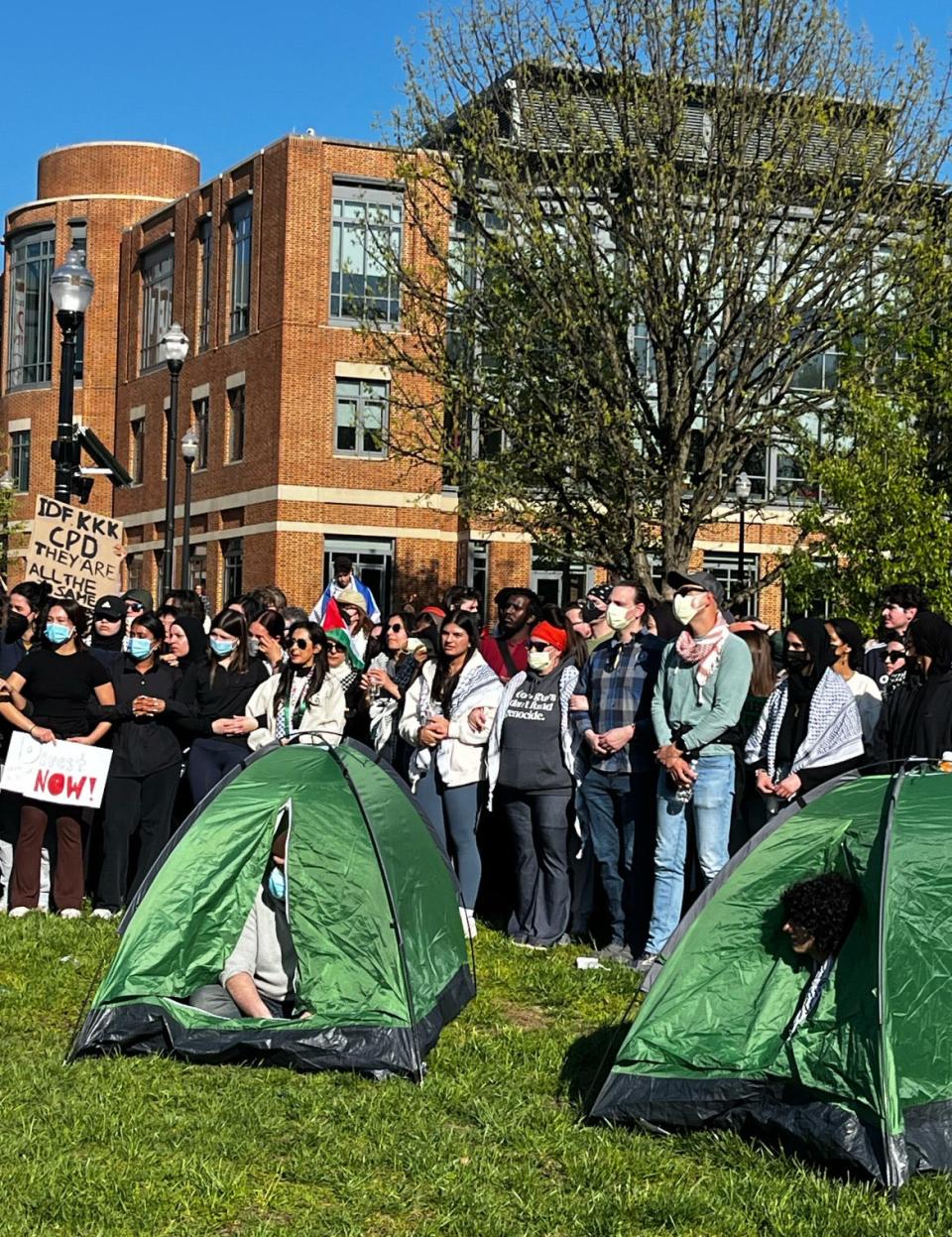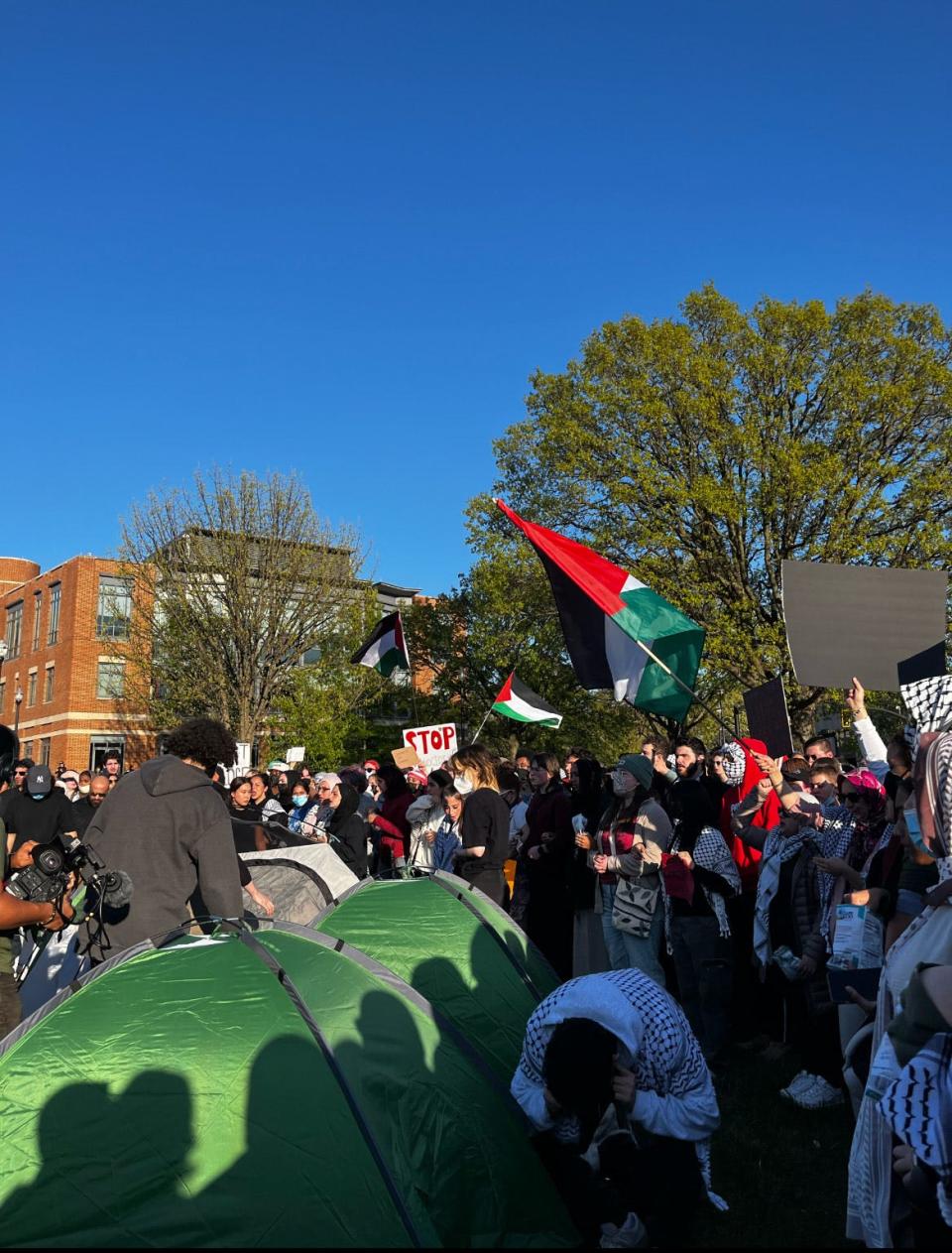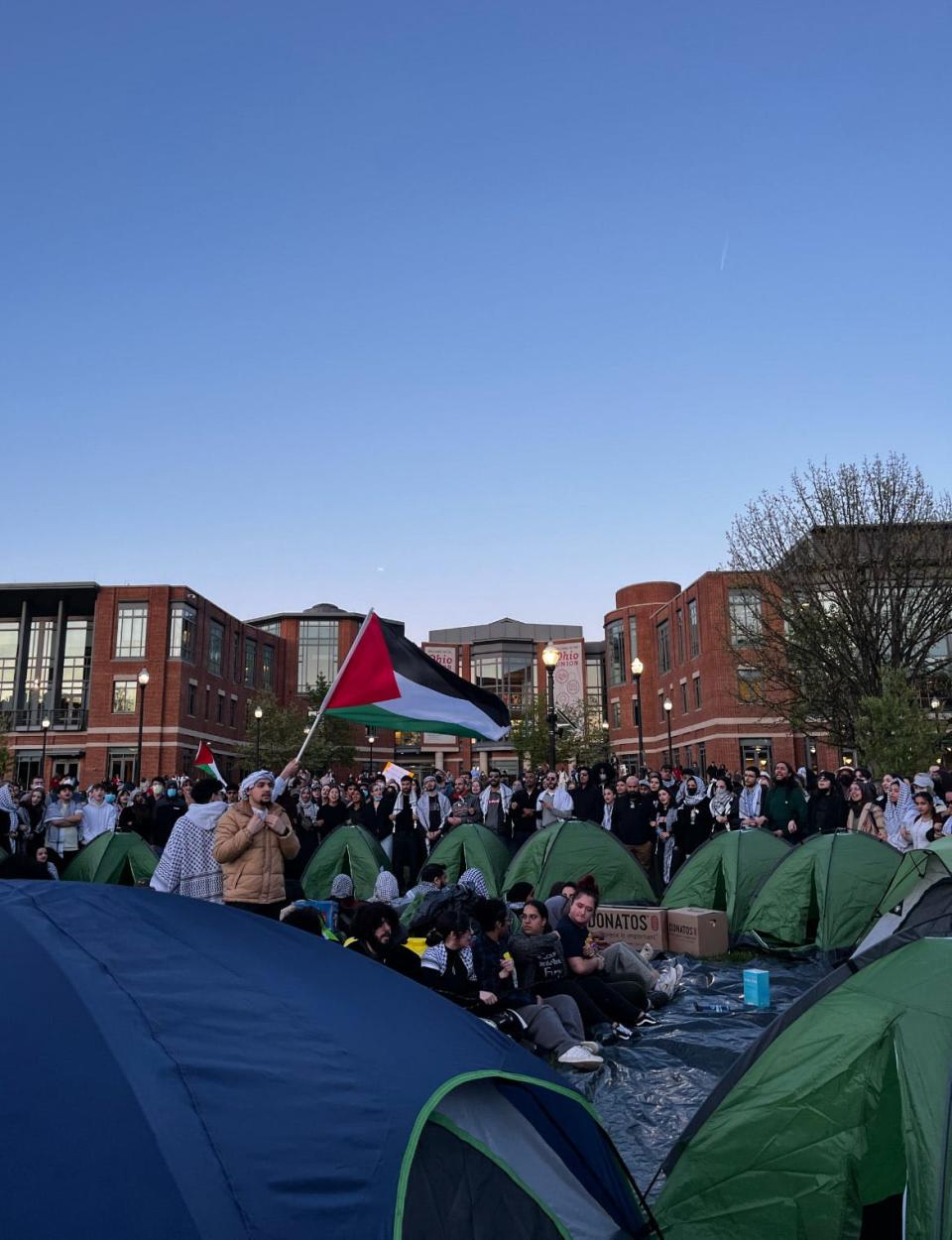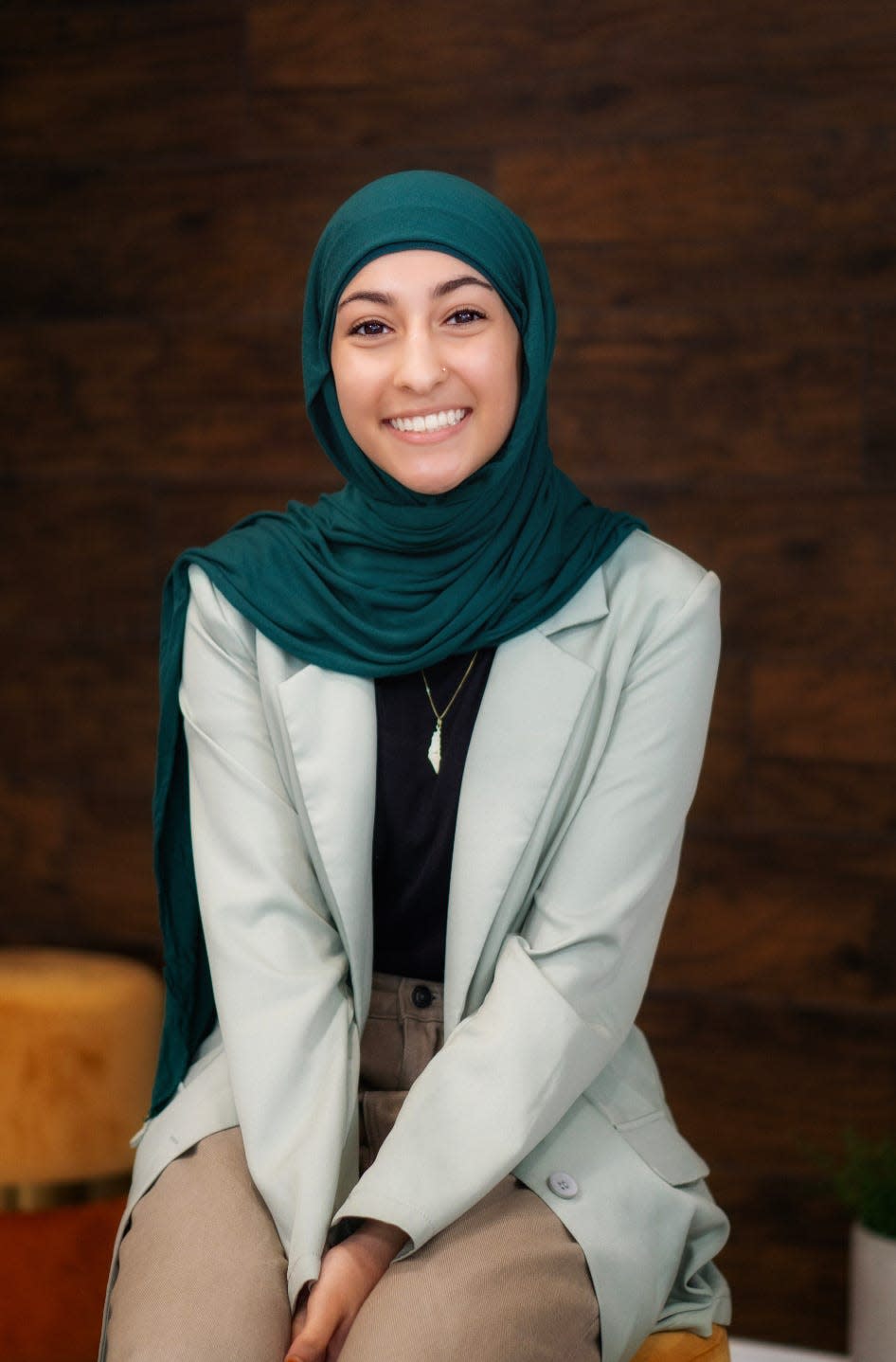'Dehumanization and silencing of Palestinians' includes Ohio State | Mariam Abaza
Mariam Abaza is a first-year student studying journalism and public management, leadership and policy at The Ohio State University.
As a Palestinian, Syrian, and Indian Muslim woman, I belong to various vibrant communities. I have never felt as much pressure to silence my identity as I do now. My entire life, I’ve proudly represented each of my cultures.
However, at Ohio State, I have felt immense pressure to silence my Palestinian identity to appease those around me and protect myself.

To be told that your people do not exist or that they deserve their plight is mentally taxing andheartbreaking. This erasure is not a new phenomenon, Palestinians have been experiencing it for the last 76 years. To tell my 87-year-old grandfather that he is not welcome on the land where he was born and raised is not only an insult to his existence but an injustice to the fundamental right to a home.
My experiences are simply a microcosm of the greater issue: the dehumanization and silencing of Palestinians worldwide.
There are thousands of Palestinian-Americans with stories just like mine, if not worse. There are hundreds of thousands of Palestinians being dehumanized and murdered. This is not just a personal issue. This is not even just an Ohio State issue. This is a global issue.

However, I will hone in on Ohio State because the university’s mission of “intentionally foster[ing] a sense of belonging where all are valued” can only be met if we acknowledge where the administration and student body fall short.
It rings hollow if this mission is plastered on the university's website without corresponding action.
Palestinian protests on campus are always met with a disturbingly heavy police presence andadministration opposition.
Protesters are labeled as radical or deranged, simply for opposing the atrocities being committed. Not only is it emotionally draining to be confronted by authorities during every action, but this stress is compounded by the grief of watching their family and friends murdered, the exhaustion of having to defend their humanity, and the anguish of navigating life while mourning.
On April 25, dozens of police brutally interfered with a peaceful student protest at Ohio State, resulting in about 40 arrests. Police officers ripped off hijabs and waited until students started praying to close in.
Students were denied basic freedoms and charged with trespassing on a public campus thatour tuition pays to run.

Since Oct. 7, Palestinian-Americans and Muslims have faced a surge in hate crimes, fostering a pervasive atmosphere of paranoia. According to CNN, there was a more than 200% increase in reported hate crimes in 2023, with a significant uptick at the end of the year.
There were a few notable hate crimes that are especially haunting. Three Palestinian college students were shot due to their keffiyehs.
A six-year-old boy was stabbed 26 times by his landlord because of anti-Muslim propaganda. These hate crimes directly affect the mental well-being of students on campus as we must triple-think before we leave the house with our Keffiyehs for fear that we will not return home. We cannot shed our identities, especially when they come in the form of hijab or the color of our skin.
Constantly living in fear ruins mental health and makes it impossible to live life normally. This climate of fear erodes mental well-being, amplifying the need for meaningful support.
Though the university offers resources, counseling alone is inadequate. The mental health aid offered simply focuses on the superficial stress while ignoring the root: the genocide in Palestine.
Attending a university-led counseling session cannot make an impact when the same university is sending money to Israel and calling in snipers and riot police to suppress its students.

To confront the mental health crisis facing Palestinian students, Ohio State must first acknowledge their presence. Only then can meaningful steps be taken to address the systemic erasure and provide the support needed for healing.
The administration's refusal to acknowledge Palestine as a country perpetuates our erasure. This is not a means of negating Israeli existence but about affirming and protecting all students, especially those whose voices are systematically marginalized and erased.
Mariam Abaza is a first-year student studying journalism and public management, leadership and policy at The Ohio State University.
This article originally appeared on The Columbus Dispatch: 'Dehumanization and silencing of Palestinians' includes Ohio State

